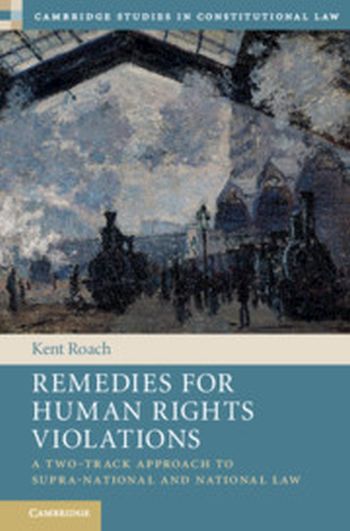
An innovative book that provides fresh insights into the neglected field of remedies in both international and domestic human rights law. Providing an overarching two-track theory, it combines remedies to compensate and prevent irreparable harm to litigants with a more dialogic approach to systemic remedies. It breaks new ground by demonstrating how proportionality principles can improve remedial decision-making and avoid reliance on either strong discretion or inflexible rules. It draws on the latest jurisprudence from the European and Inter-American Courts of Human Rights and domestic courts in Australia, Canada, India, New Zealand, Hong Kong, South Africa, the United Kingdom and the United States. Separate chapters are devoted to interim remedies, remedies for laws that violate human rights, damages, remedies in the criminal process, declarations and injunctions in institutional cases, remedies for violations of social and economic rights and remedies for violations of Indigenous rights.